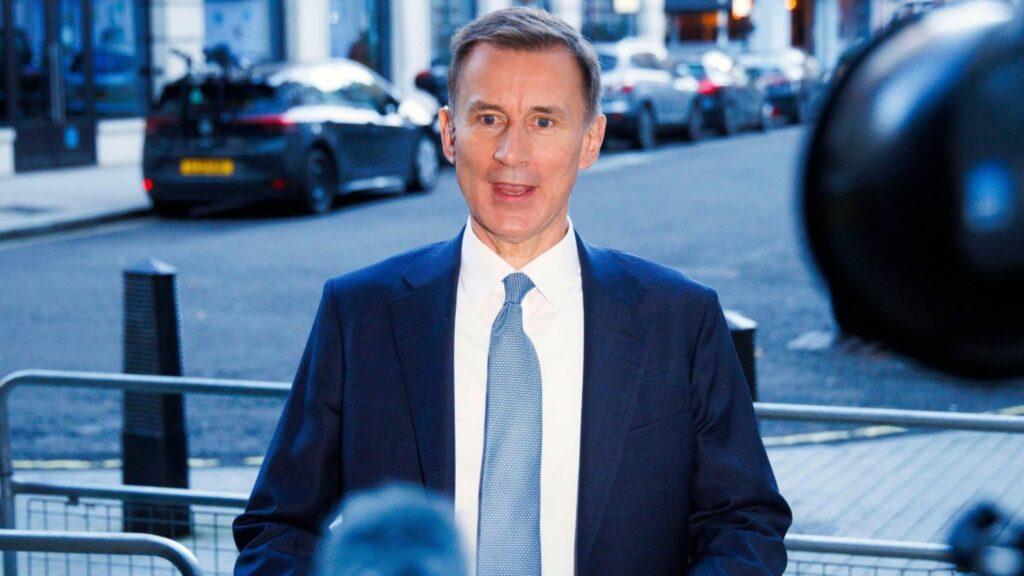The Institute for Fiscal Studies, a prominent economic think tank, has cautioned British Finance Minister Jeremy Hunt against announcing additional pre-election tax cuts in his upcoming budget unless he can elucidate the accompanying painful spending reductions necessary to fund them.
Hunt, along with Prime Minister Rishi Sunak, has expressed a desire to alleviate Britain’s tax burden, which is projected to reach its highest level since World War Two.
This push for tax relief comes amid growing demands from many Conservative Party lawmakers, as the opposition Labour Party maintains a lead in opinion polls.
The Institute for Fiscal Studies highlighted that Hunt may exploit increased flexibility in public finances resulting from higher population estimates, which would bolster headline economic growth, along with diminished expectations for future interest rate levels.
However, Hunt’s previous budget update in November, which featured a reduction in social security contributions, was achieved by tightening public spending—a move criticised given the strain already present on various public services such as health, education, social care, and housing.
Martin Miklos, an economist at the Institute for Fiscal Studies, emphasised the importance of clarity in government spending plans before considering tax cuts, stating, “The Chancellor should resist this temptation.
Until the government is willing to provide more detail on its spending plans in a Spending Review, it should refrain from providing detail on tax cuts.”
The head of Britain’s fiscal watchdog has strongly rebuked the government for its lack of detail regarding the implementation of spending cuts outlined by Hunt in November.
Additionally, the International Monetary Fund (IMF) cautioned against further tax reductions.
Analysts predict that Britain’s anticipated sluggish economic growth will likely necessitate tax increases or additional spending cuts for the next government, regardless of the election outcome.
Both the Conservative and Labour parties aim to reduce debt as a proportion of economic output in the future, although achieving this goal appears challenging at present.
